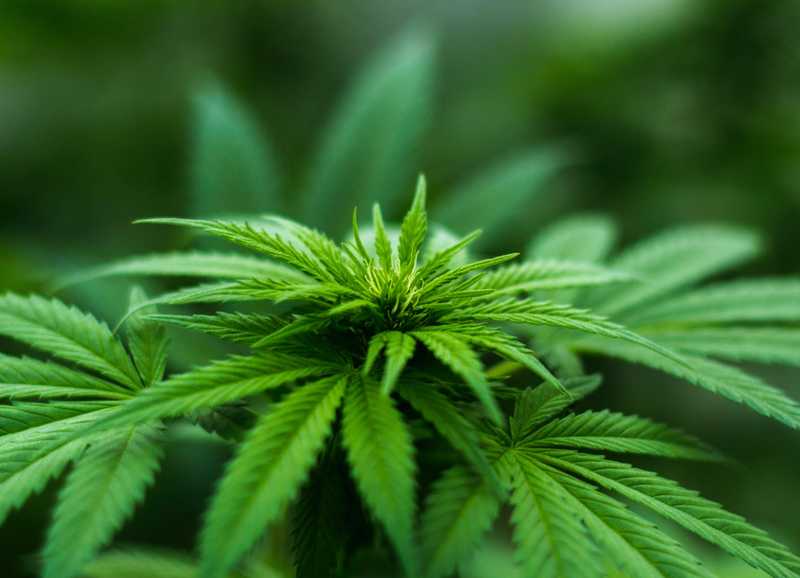Canada is only the second nation—Uruguay was the first—to fully legalize the sale and consumption of adult-use cannabis. In much of the rest of the world, marijuana remains an illegal substance. While some countries such as the Netherlands, Portugal and India tolerate cannabis without going so far as to legalize it, others still treat the plant as harshly as they do hard drugs like heroin and cocaine.
In much of Southeast Asia, for example, being convicted of marijuana possession or consumption can result in many years in prison, while trafficking sometimes means an automatic death sentence.
Given that cannabis laws vary so widely around the world, it’s worth taking a look at how other countries are reacting to legal cannabis in Canada and at how legalization in Canada is affecting cannabis regulations abroad.
Some Countries Issue Cannabis Warnings to Their Citizens
Given that cannabis laws in many East Asian nations tend to be strict, it was no surprise that governments there tended to react unfavourably towards adult-use cannabis legalization in Canada. The South Korean embassy in Canada warned its citizens that they risk being prosecuted for marijuana consumption and possession if they use cannabis in Canada.
That isn’t a hollow threat, either. South Koreans returning home have been prosecuted for actions that, while legal in the countries they were visiting, are against the South Korean criminal code. For example, gambling is illegal in South Korea, and citizens have been charged for visiting casinos in countries where gambling is allowed.
Japan similarly warned its citizens against consuming cannabis while in Canada. However, while the Japanese Consulate in Vancouver warned that Japanese law applies to Japanese citizens overseas, experts say it’s difficult—though not impossible—for citizens to be prosecuted at home for actions that were lawfully committed overseas.
RELATED: THE WORLD WATCHES AS CANNABIS LEGALIZATION NEARS IN CANADA
Singapore, where possession of cannabis can lead to prison time, caning and in extreme cases, the death penalty, also warned citizens who take cannabis abroad that they can be prosecuted when they return home. Even Canadians could find themselves facing legal problems if they try to enter Singapore after consuming cannabis in Canada. Travel Canada tweeted that Canadians travelling to Singapore may be subject to drug tests at ports of entry.
A positive test could expose Canadians to prosecution under Singapore’s drug laws, which is particularly alarming given that drug tests can turn up positive for tetrahydrocannabinol (THC) weeks and months after marijuana was last consumed.
Is Canada in Violation of International Law?
One of the more interesting responses to Canada’s cannabis legalization came from Russia. The Russian Ministry of Foreign Affairs—in a statement that was only posted in French and therefore largely went unnoticed by the English-language media—described cannabis legalization as unacceptable. Russia accused Canada of violating international law. It called Canada’s actions hypocritical given that Canada has condemned Russian violations of international law, notably the annexation of Crimea and the attempted murder of a former Russian agent in Britain.
While Russia’s accusations of hypocrisy are certainly self-serving, it’s technically right about cannabis legalization violating international law. Under international law, marijuana is considered a controlled substance alongside cocaine and heroin. Many countries, including Canada, have signed international agreements committed to limiting cannabis’s manufacture, distribution and trade.
The International Narcotics Control Board, the U.N. body that oversees international drug regulations, even issued a statement saying it regretted Canada’s decision to move forward with legalization.
At the same time, however, legalization efforts in a number of U.S. states and Canada has prompted the World Health Organization (WHO) to conduct a “critical review” of cannabis’s status as a scheduled drug. This review could eventually lead to international law better reflecting the reality that classifying cannabis in the same category as heroin or cocaine makes no sense.
Canadian Marijuana Legalization Boosts Reform Efforts Worldwide
Canada is hardly alone in liberalizing its cannabis laws and, the bluster of a few countries aside, it’s unlikely we’ll face any major consequences from governments abroad for going ahead with legalization.
If anything, marijuana legalization will provide a boost to liberalization efforts in other countries. The new president of Mexico, for example, has stated that he wants to legalize marijuana in his country. And the government there has reportedly been studying Canada closely as it prepares to draft cannabis legalization legislation.
New Zealand is also due to hold a referendum on full marijuana legalization by 2020. The fact that Canada shares many characteristics with New Zealand—both are highly developed countries with similar cultures—means that authorities there will be looking closely at what lessons they can learn from Canada.
Even in East Asia things are changing. While no country there is talking about full legalization, efforts have picked up to liberalize notoriously strict cannabis laws. Malaysia, for example, where trafficking results in an automatic death sentence, is taking the steps towards legalizing marijuana for medical use. Advocates of medical marijuana there say that legalization of cannabis in Canada has helped shift public opinion of the plant in Malaysia.
However, Thailand may beat Malaysia to become the first country in Southeast Asia to successfully legalize medical marijuana. Government leaders in that country are primarily driven by economic factors for doing so, with Thai advocates of reform noting that Canada is expected to take an outsized share of the multibillion cannabis market. This could leave Thailand, which—with a tropical climate and low labour costs—is otherwise ideally situated to become a major cannabis producer, scrambling to catch up.
RELATED: FOREIGN CANNABIS COMPANIES INVEST IN THE GREAT GREEN NORTH
So, while few foreign governments are coming forward to praise Canada for legalizing marijuana—indeed, a few have done just the opposite—it’s clear that government leaders abroad are watching legalization closely. Some countries may dig in their heels and stick to tough prohibition laws. But by and large legalization seems to be giving many countries—even some with the most notoriously strict marijuana laws—reason to reassess their attitudes towards cannabis.
Photo credit: Michael Fischer
